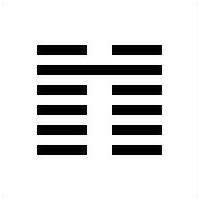The psychology of a large crowd inevitably sinks to the level of mob psychology
– C.G. Jung
The sage uses the Yi to relate to the mind of the people
– Chung-Ying Cheng
In the early days of the internet, we thought it was a new era of democratic expression. It was compared to a Greek agora, described as cyberspace, and could only be good. People built Home Pages with free web space then linked to others. They described their hobbies and interests like books, recipes, and music.
There were developmental phases as the network advanced described as Web One, Two, and Three. Internet theorists studied online games and one example was notorious. You built an avatar then met others. What could possibly go wrong? A woman had her avatar hacked, so she couldn’t control it, then saw the figure subjected to sexual assault. It was a new subject and the academic described how this was simultaneously traumatic but unreal.
America Online were one of the first corporations offering internet access. Yahoo, Northern Lights, Excite and Google were building search engines to make sense of the new medium. Everyone liked Google because it was a clean white page. The others were full of adverts. The Google algorithms became impressive, and the brand grew slowly but powerfully. Amazon started with books. Now they experiment with drone delivered food.
Myspace arrived, YouTube, Blogger, Facebook, Twitter, and everyone relocated to “social media.” The term “interaction” was used within internet theory as if it were something special. But we “interact” reading a book. We “interact” listening to radio. The social “like” seems to elevate a thought, but in reality doesn’t. It might spread across the network, but it’s the same thought. Social exchange is another matter, where you meet delightful people; but most of Twitter is political.
I made a web site called recumbentgaze.net. Wrote the code, used an image for the top of the page, me lying on a bed with a book. You could see what it was, but as a stylised graphic. I wrote about cyberspace, The Matrix, Jean Baudrillard’s simulacrum and Chuang Tsu’s Butterfly Dream. When I joined Facebook it didn’t last long. The final exchange was similar to the raped woman avatar. There was me, making an observation, and there was him, doing identity politics. I was told to “check my privilege.” That meant education, so knowing more means you should be considered less. I wasn’t judging him, told him so, but he was judging me and wouldn’t stop. Then you become anxious about the mob, because that’s what happens with politics people.
Since that time and finishing with Facebook (I might return but not now) I saw more of the same at Twitter. I started there innocently, and a hiking friend explained how people viewed everything according to socio-politics. That proved correct but is it not strange? What is it supposed to achieve, why the obsessive interest? Hannah Arendt wrote these perceptive remarks:
The ideal subject of totalitarian rule is not the convinced Nazi or the convinced Communist, but people for whom the distinction between fact and fiction (the reality of experience) and the distinction between true and false (the standards of thought) no longer exist (The Origins of Totalitarianism)
Nonsense becomes reality at Twitter, what Jean Baudrillard called the simulacrum. A digital machine, shaped with algorithms and an interface not inherently negative but which is easily misused. The “like” becomes obnoxious behaviour with a cheering on logic. Twitter reflects politics thinking as Arendt identifies: an experience best avoided.
Twitter is pleasant with people interested in walking, books, nature, photography, but a sewer elsewhere. Tim Berners-Lee, who built the internet, expressed concern a few years ago about fake news in particular. He was building a browser which avoids the problem. Elon Musk has introduced Community Notes at Twitter which seems effective but with limited influence. If someone posts false or misleading content they can be noted: context explained, facts restored, for everyone to see. It’s sad when so much human energy is needed to establish a simple truth.
Twitter can be understood with I Ching psychology and as a reflection of psyche. Context collapse is one of the problems, where appearances replace meaning. If you’re not aware of the meme dynamic, you stumble into subjects viciously fought by people (you realise) you don’t want to engage with. The chaos is like disordered lines in a hexagram. A yang line corresponding to yin is complementary. Yang meeting yang means conflict. Yin with yin describes malicious soft gossip. When you first start with the I Ching, lines and words don’t make sense. But they have an order which is stratified, connected, and ultimately wholesome.
Hexagram 8 is called Holding Together where common purpose unites a situation as the ruling yang line because:
The waters on the surface of the earth flow together wherever they can, as for example in the ocean, where all the rivers come together. Symbolically this connotes holding together and the laws that regulate it. The same idea is suggested by the fact that all the lines of the hexagram except the fifth, the place of the ruler, are yielding (Wilhelm)

Hexagrams represent Heaven in the top two lines, humanity in the middle, and Earth at the lower lines. This corresponds to the Maslow hierarchy and thus different levels of need. Politics fighting is at the base of the pyramid. Self realisation is at the top. The sixth hexagram line is a philosopher disengaged from lower concerns. The Chinese term wu wei means effortless action, part of which is not having a fixed place. It’s the essence of Taoism, symbolised as flowing water.
Nietzsche’s Zarathustra begins his story at the top of a mountain which for the I Ching means the sixth line. He is horrified when he descends into society. Problems are solved, the I Ching says, when order returns. Read a book. Go for a walk. Consult the I Ching about the chaos found on the internet. One of the principles of Taoism is not to fight and oppose. If you do, you build an obstruction in your psyche which is ultimately harmful, because it contradicts greater reality.
In hexagram 52 the I Ching advises “The superior man / Does not permit his thoughts / To go beyond his situation” (Wilhelm). This is an antidote for anxiety and in relation to the internet means switch off your computer. Some part remains, because the code never stops, so you must psychologically disengage. Consider these words and the benefit of woods, hills, coast, fields, and rivers:
Even broken in spirit as he is, no one can feel more deeply than he does the beauties of nature. The starry sky, the sea, and every sight afforded by these wonderful regions, seems still to have the power of elevating his soul from earth (Mary Shelley, Frankenstein)
One of the strategies of Cognitive Behavioural Therapy is observe events to disentangle the meaning. Something happens objectively. Then, you observe, it makes you feel a certain way. Then, you realise, that makes you think something negatively or positively. This is similar to an I Ching consultation as you interpret a situation more deeply. Jung calls the I Ching “psychological phenomenology.” Lines are either yin or yang, harmonious or discordant. Moving lines are an energised part of a hexagram about to change. Maximum pushing yang becomes exhausted and changes to yin. Yin, tired of being passive, becomes yang.
We operate with six lines, as dimensional human beings. Lower might need balancing, higher activating. People say you must only ask deep I Ching questions. That’s not correct. You can ask any question, such as “how can I understand this internet experience” or “why is it damaging me.” You then weave together the lost meaning when you inserted thoughts into the machine.
Richard Wilhelm is deservedly famous for his I Ching. Carl Jung was impressed and wrote the foreword to his book. It was ten years of work, in consultation with a Chinese scholar called Lao Nai-hsuan. Wilhelm said the book “manifests itself as kindness but conceals its workings.”
I write like this is a magazine column. With research, references, and a lot of time. If you like it, perhaps you would support me.

